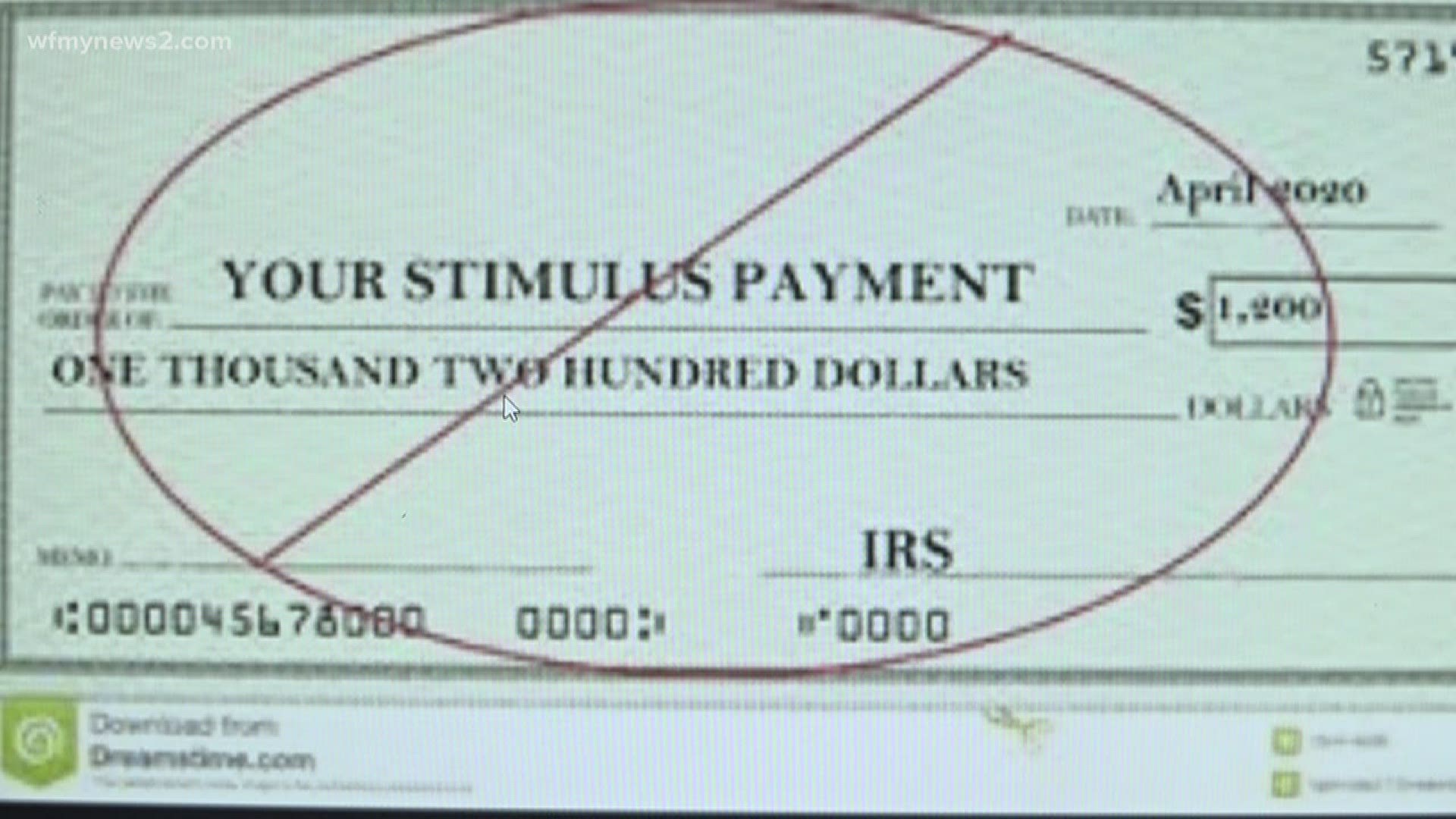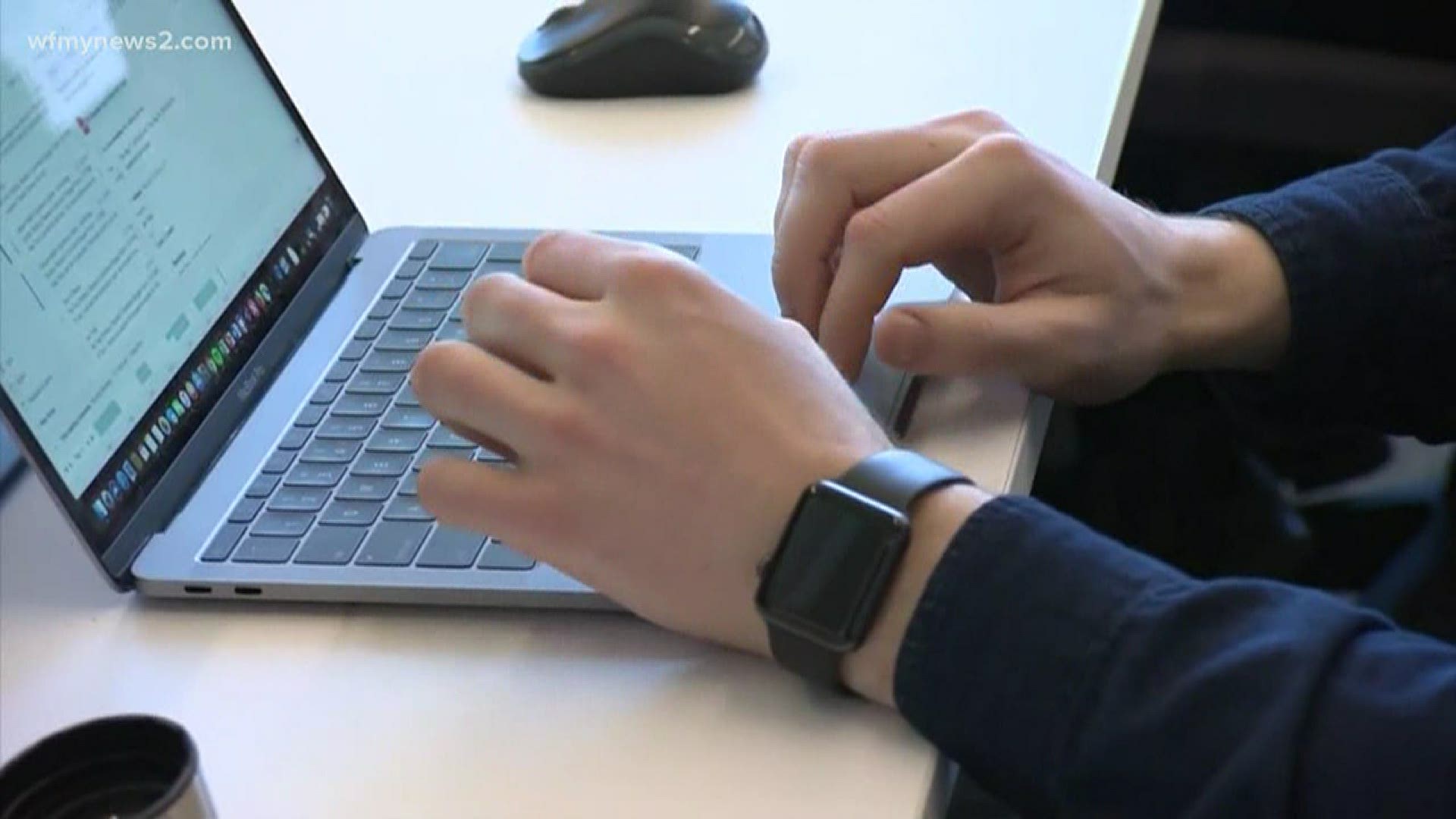GREENSBORO, N.C. — The IRS and the FBI have warned to beware of scammers who are out to target your money and your personal information.
The government agencies said that with stimulus checks expected in the coming weeks, scammers are on the prowl.
The coronavirus pandemic has caused a lot of panic and anxiety and it's made many people vulnerable to scams.
The Federal Trade Commission says Americans lost $7 million to coronavirus related scams in the first 9 days of the month of April alone.
So far this year, a total of $12 million dollars was lost to coronavirus scams, according to the FTC.
They say scammers are targeting people with robocalls and phishing emails.
Some scams promised face masks, hand sanitizers, and even toilet paper.
One Greensboro senior named Georgia got one of those email phishing scams posing to be from the social security administration. The email offered to help her get her stimulus check disbursed quicker, but she would have to verify her personal information in the link in the email. She told WFMY News 2 she nearly fell for the email scam.
"When they said that I have to hit a link to confirm my information, I thought well Social Security already has my information why would they need to confirm it and all the news items have said for the stimulus check we don't have to do anything on our side," said Georgia, who didn't want to use her last name.
Georgia deleted the email but said it looked very real. She said, in hindsight, she now understands how and why many people can become victims of such scams easily.
"When you're dependent on outside sources to meet your monthly need that can be very disconcerting and I can see where people would jump at it," she said.
Georgia said she has called her family and friends on several occasions to verify a suspicious email.
"I could also hear my families' voices saying, don't do this, it's probably a scam," she said.
On its website, the social security administration said that it doesn't send emails and will only contact you with a mailed letter. Law enforcement and watchdog groups have advised to never give out your personal information.


